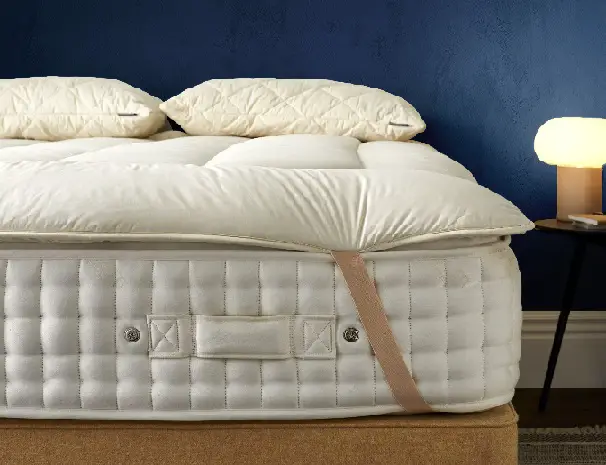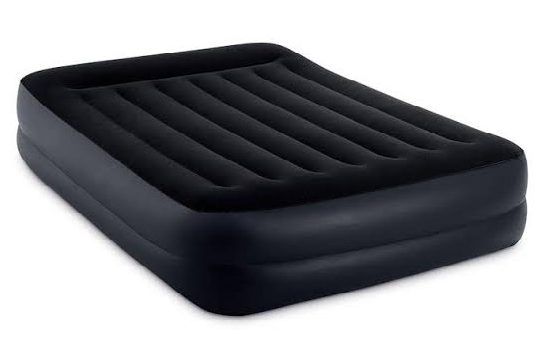One of the most crucial considerations when shopping for a new mattress is the maximum allowed weight.
It’s important to know how much weight a mattress can sustain to get the most out of its comfort and lifespan.
This article will discuss mattress weight restrictions in depth to assist you in making a well-informed purchase.
Table of Contents
Importance of considering weight limits when choosing a mattress
When it comes to providing support and comfort, mattresses are created with specific weight ranges in mind.
Going beyond these weight limits might cause the mattress to wear out faster, become less comfortable, or possibly become structurally damaged.
Exceeding the weight limitations can render the warranty null and invalid, leaving you with no legal protection in the event of a breakdown.
Typical weight limits for mattresses
The majority of standard queen-size and king-size mattresses have a weight limit of up to 500 pounds. This is true for both sizes.
This weight limit is normally divided between the two sides of the bed, with each side having a maximum capacity of up to 250 pounds.
If you share your bed with a partner, it is extremely important to keep in mind that this limit takes into account the combined weight of both people sleeping in the bed.
Warranty implications and comfort issues when exceeding weight limits
Exceeding the weight limit of a mattress not only puts strain on the materials but can also lead to discomfort and inadequate support.
The mattress may sag, lose its shape, or develop uneven areas, impacting the quality of your sleep. Furthermore, going beyond the weight limit can void the warranty, leaving you without the manufacturer’s support in case of any defects or issues with the mattress.
Understanding Typical Mattress Weight Limits
Conventional mattresses, which include various types such as memory foam, latex, and innerspring, are typically designed to support individuals weighing up to 250 pounds.
This weight limit applies to each side of the mattress in sizes like queen and king, resulting in a total weight limit of 500 pounds for the entire bed.
Manufacturer’s information on specific weight limits
To ensure accuracy and specificity, it is always advisable to consult the manufacturer’s information regarding weight limits. Most reputable mattress brands provide detailed specifications, including weight limits, on their websites.
If this information is not readily available, contacting the brand’s customer service directly will help you get the necessary details.
Understanding the weight limits of different mattress models can aid in narrowing down your options and finding a mattress that best suits your needs and body type.
Different Types of Mattresses and Weight Limits
While memory foam and poly foam mattresses offer excellent pressure relief and motion isolation, they may not be suitable for individuals weighing over 200 pounds.
The support layers in these mattresses are often not robust enough to maintain proper spinal alignment and prevent excessive sinkage for heavier individuals.
Hybrid mattresses for better support
Hybrid mattresses have gained popularity in recent years, especially for those seeking improved support and higher weight limits.
These mattresses combine an innerspring base with comfort layers of foam and/or latex. The innerspring base provides sturdy support, while the comfort layers offer cushioning and pressure relief.
Hybrid mattresses’ weight limits
Hybrid mattresses are specifically designed to accommodate individuals weighing between 300 and 500 pounds. These mattresses typically offer a higher weight limit, often up to 1,000 pounds for queen and king sizes.
The combination of durable innerspring support and high-density comfort layers makes hybrid mattresses suitable for heavier sleepers, providing the necessary support and ensuring proper spinal alignment throughout the night.
Hybrid mattresses for heavier individuals often incorporate features like enhanced edge support, which prevents sagging and improves overall durability.
These mattresses are also designed to minimize motion transfer, allowing couples to sleep undisturbed even if one partner moves during the night.
The Impact of Mattress Thickness on Weight Limit
Contrary to popular belief, the thickness of a mattress does not directly correlate with its weight limit.
The weight limit is primarily determined by the materials and construction of the mattress, rather than its overall thickness. Therefore, it’s important not to solely rely on mattress thickness when considering weight limits.
What Influences Weight Limits?
The components used in the construction of a mattress play a significant role in determining its weight limit. Mattresses that incorporate coils or steel in the support layer tend to have higher weight limits compared to those that primarily use poly foams or memory foam. The inclusion of coils or steel provides additional support and durability, making the mattress more capable of handling higher weight loads.
Weight Limits for Mattress Foundations
Just like mattresses, mattress foundations or box springs have their own weight limits. Most queen and king-size foundations can typically support up to 500 pounds, excluding the weight of the mattress.
Adhere to the weight limits specified by the manufacturer will ensure proper support and longevity of both the mattress and foundation.
Weight limits compliance for warranty compliance
It’s worth noting that exceeding the weight limit of the foundation may also void the warranty of both the mattress and foundation.
To ensure the best performance and longevity of your mattress, it’s crucial to choose a foundation that matches the weight capacity recommended by the manufacturer.
Choosing the Right Mattress for Your Weight
For individuals weighing over 300 pounds, hybrid mattresses are often the best choice. The combination of sturdy innerspring support and high-density foam or latex comfort layers provides the necessary support and resilience for heavier sleepers.
This ensures proper spinal alignment, pressure relief, and overall comfort throughout the night.
Proper spinal alignment and support for comfort and longevity
Regardless of weight, it’s essential to prioritize proper spinal alignment and support when choosing a mattress. This ensures that your body is well-supported, and pressure points are relieved, promoting a restful and rejuvenating sleep experience.
Consider mattresses with targeted support zones or adjustable firmness options to cater to your specific needs.
Why king or queen size mattress for heavier people
If you are on the heavier side, opting for a king or queen-size mattress is advisable. These larger sizes generally offer higher weight limits compared to twin or full-size mattresses.
The extra surface area provides additional support and space to distribute weight evenly, reducing the chances of premature wear and maintaining the mattress’s integrity over time.
Conclusion
Understanding the weight limits of mattresses is crucial for choosing a bed that can provide the necessary support, comfort, and durability.
Most conventional mattresses have weight limits of up to 500 pounds, but for heavier individuals, hybrid mattresses offer higher weight limits and superior support.
Consider your body weight, body type, and specific mattress construction to ensure optimal sleep quality and to avoid warranty issues.
By making an informed decision and selecting a mattress within the appropriate weight limit, you can enjoy restful nights and wake up refreshed each morning.


